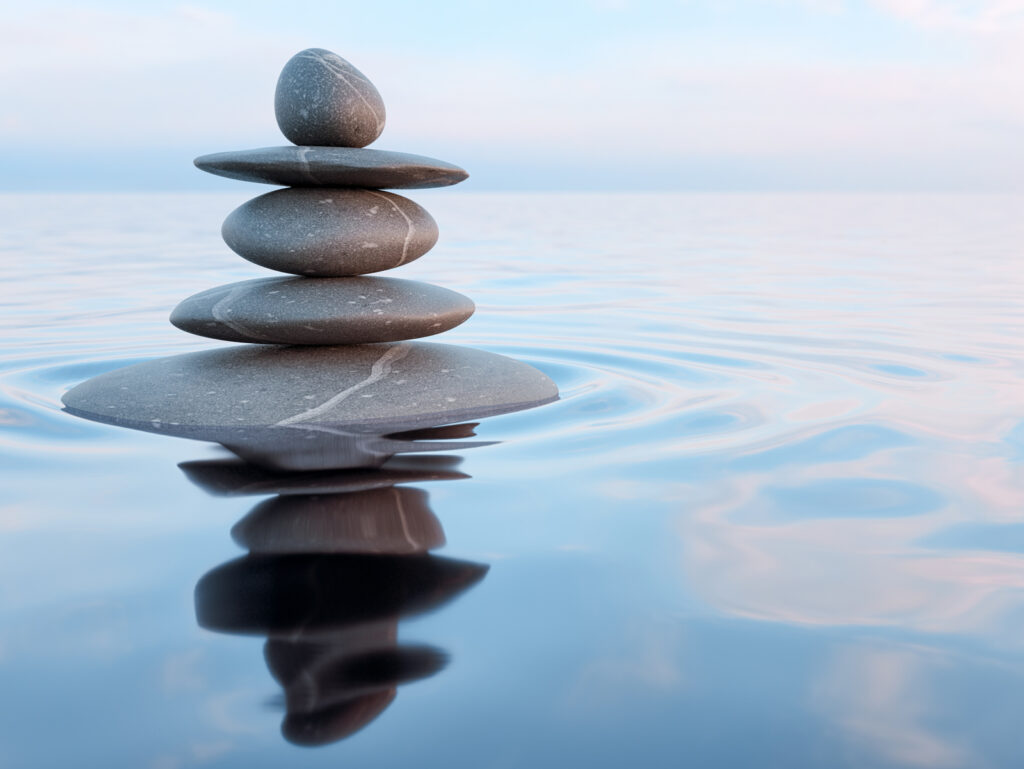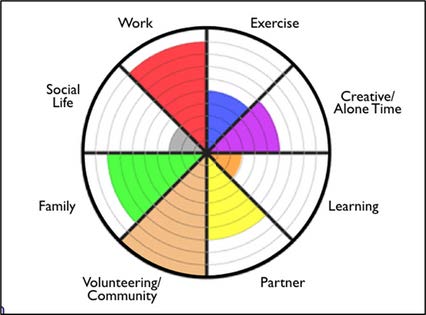How to Find Balance in Life
August 1, 2025

Rethinking Balance: Finding Harmony Over Hustle
Let’s start today by rethinking this big word we all feel pressure around — balance.
Most of us have been taught that balance means giving equal time to everything — work, family, health, hobbies, relationships. It’s the work-life balance. And when we fall short of that perfect distribution, we feel like we’re failing.
But here’s the truth: balance does not mean equal time.
Balance isn’t about a perfectly divided pie chart where every slice gets the same attention. It’s about presence — being fully engaged where you are, when you’re there.
Presence Over Perfection
You could spend three hours with your kids or a friend in the evening, but if your mind is still on emails, to-do lists, and tomorrow’s meeting — you’re physically there but emotionally checked out. That’s not true balance.
On the flip side, you might only have thirty focused, undistracted minutes with them after work — but if you’re fully present in that time, that connection fills both of your buckets.
Balance is about the quality of your energy, not the quantity of your hours.
Seasons of Hustle and Rest
Life moves in seasons. There will be times when your calendar feels packed and you’re in full “go” mode — and there will be seasons when you can slow down, rest, and refill.
Both are natural. The key is staying connected to your center — the place within you that knows what matters most. When you lose touch with that, you start living by default instead of by design.
Step 1: Awareness — Holding Up the Mirror
Before we can create any kind of shift, we need awareness. You can’t change what you don’t see.
That’s why this week, I want to introduce a simple but powerful exercise — a time audit.
Imagine you had a hidden camera tracking your day. What would it see?
Not what you planned to do — but what you actually did.
It’s a lot like tracking what we eat. We might think we’re eating healthy, but when we write everything down, we see patterns we never noticed before.
So ask yourself:
- How much time is spent in meetings?
- Commuting?
- Scrolling on your phone?
- Doing things out of obligation?
- Putting out other people’s fires?
For many women, the day gets eaten up by everything and everyone else… and at the end of it, you wonder where your time went.
Your Time Audit Challenge
Here’s the first step: track your time for at least one weekday and one weekend day.
No judgment. No shame. Just observe.
I use a simple Google tracker and break it down into categories such as:
Work | Family | Errands | Social Media | Housework | Fitness | Spirituality | Rest
Then I write down everything I do. Honestly, it feels like a hassle in the beginning — but tracking instantly makes me more intentional and focused in the moment.
Think of it as holding up a mirror to your life — not to criticize, but to clarify.
When you can see where your energy is going, you can start to reclaim it.
Step 2: Prioritize What Truly Matters
Now that you’re becoming more aware of how your time is being spent, let’s take it a step further and talk about how to prioritize what truly matters.
Here’s something we often forget: you are in charge of what gets your energy.
Yes, life is full and unpredictable. But when everything feels urgent, nothing is truly important.
So today I want to give you three simple tools to help you prioritize with purpose.
1) The Wheel of Life

The Wheel of Life is a powerful self-assessment tool designed to help you visualize how balanced your life is across key areas — such as career, health, relationships, personal growth, finances, fun, and spirituality.
To use it:
- Rate your current satisfaction in each category on a scale from 1–10.
- Plot those scores on the wheel.
Once completed, the wheel gives you a clear visual snapshot of where you’re thriving and where you may feel unfulfilled. From there, you can identify which areas need more attention and make conscious choices about how to realign your time, energy, and priorities.
By regularly revisiting and updating your Wheel of Life, you can track your growth and stay aligned with what truly matters.
2) How to Find More Time
Here’s the truth: you can’t.
There are only 168 hours in a week, and we can’t change that — but we can change how we use them.
For example, under “Career,” maybe you want that to be 40 hours a week.
That still leaves 128 hours for everything else.
So… how do you want to spend that time?
Create your own life categories and assign realistic time goals to each one:
| Category | Example Hours |
|---|---|
| Career | 40 hours/week |
| Finances | 1 hour/week |
| Family | 2 hours/day |
| Health | 1 hour/day |
| Fun/Rest | Flexible |
Once you add it all up, you’ll usually find you have more time than you realized — and more opportunity to make conscious adjustments.
3) Compare and Realign
Now, compare your time tracker (where your hours actually go) with your ideal schedule (how you want to live).
This shows you two key points:
- Where you are now
- Where you want to be
The gap between the two reveals your next small shifts — maybe fewer late-night scrolls, more morning walks, or saying no to obligations that drain your energy.
These micro-shifts compound over time, creating a life that feels lighter, calmer, and more aligned with who you truly are.
Your New Definition of Balance
So let’s rewrite the narrative.
Balance isn’t about perfect time management — it’s about energy alignment.
It’s when your actions reflect your values and your presence matches your priorities.
When you live with that kind of awareness, you don’t just “manage time.”
You design your life.
Harmony over hustle.
That’s our new mantra.
Stay Connected to Your Balance Journey
If this message resonated with you, I invite you to join The Bliss List — my monthly newsletter for women who are ready to live with more clarity, confidence, and calm.
You’ll receive mindful insights, inspiring stories, and updates about upcoming events — including my next Vision Workshop: 3 Keys to Mastering Your Results — so you’ll always know when and how to register.
✨ Sign up here
Let’s continue building a life of harmony, purpose, and bliss — together.
Leave a Reply Cancel reply
want more inspiration?
Subscribe to our BlIss List for weekly goodies
Every month, I'll stop by your inbox with some simple and practical self-care reminders to help you reduce overwhelm and stress. My goal is to make your day more blissful with an email that you ACTUALLY want to open (because I know your inbox gets way too full). Sound good? Sign up below!
Bliss List newsletter